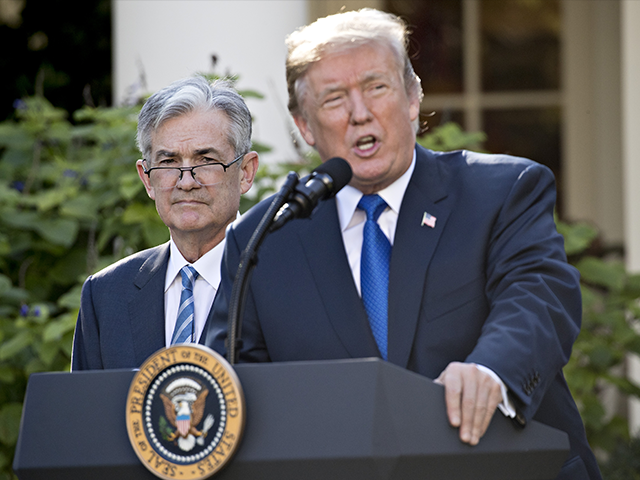The Fed Will Not See Tariffs as Inflationary
A question we get asked a lot about is how the Federal Reserve is likely to react to President-elect Donald Trump’s tariffs. The short answer is that the Fed is likely to ignore them.
Critics of the tariffs have argued that raising duties on imports will be inflationary, will slowdown U.S. growth or even tip the economy into a recession, and will force the Fed to raise interest rates in reaction to higher prices. Sometimes a single analyst or pundit claims all three things will happen.
There’s no widely accepted model of the economy in which tariffs themselves are inflationary. Quite the opposite. Tariffs are a tax on importers, which lowers their income. All other things being equal, this is a deflationary impulse from tariffs.
What’s more, tariffs are likely to push up the value of the dollar against foreign currencies. That will increase the purchasing power of the U.S. dollar, which is also deflationary. We saw exactly this dynamic when Trump put tariffs on Chinese goods. There is good argument that the deprecation of Chinese currency was so strong that it partially undermined the effectiveness of the tariffs, allowing Chinese manufacturers to defend their market share despite the increased duties.
Of course, the critics of tariffs say that importers will pass on the costs of the tariffs to consumers, pushing prices of imports up. But a one-time increase in prices as a reaction to tariffs is not persistent inflation. What’s more, it is likely that other prices would adjust downward in reaction to consumers spending more on imports, making the impact on the overall price level minimal.
By subscribing, you agree to our terms of use & privacy policy. You will receive email marketing messages from Breitbart News Network to the email you provide. You may unsubscribe at any time.
The Fed Will See Any Price Increases as Transitory
The Fed’s reaction to price increases due to tariffs would not likely be to increase interest rates. The Fed is not a machine that responds automatically to inputs such as higher prices. It inquires into the source of price increases and attempts to determine whether they are likely to last and whether higher interest rates would effectively restore price stability. Recall that when inflation began to take off early in the Biden administration, the Fed did not react because it believed inflation would be transitory and assumed a good deal of inflation was being caused by supply-chain constraints.
In the case of tariffs, the Fed is likely to view any price effects as one-offs and unlikely to be effectively offset by rate hikes. Ironically, some of the same people who claim the Fed would raise rates in response to tariffs argued that the Fed was over-tightening in 2022 and 2023 because they saw inflation as mostly a result of supply constraints. They understood properly that the main effect of higher rates is on the demand side, which means they would not be very effective at holding down “pass-through” price increases from tariffs.
Indeed, when the Fed staff modeled the impact of tariffs, they found that a hike in response to a tariff would result in an output decline and possibly a recession. Which is to say, the hike would produce an undesirable result. The better policy would be for the Fed to “see through” any tariff induced price increase. Inflation would temporarily jump and then quickly fall back down. So long as inflation expectations remained anchored, there would be no longer-term inflationary problem that would need to be addressed through higher rates.
What about growth? Even the most pessimistic takes on tariffs do not find a very large impact on growth from U.S. tariffs. Instead, the effect comes from the retaliation many economists assume would follow a U.S. hike. But that’s political science not economics. Economists have no way of knowing how the governments of other countries will react to tariffs. We suspect that while some countries will threaten tariffs and may even temporarily retaliate, most will quickly realize that their access to U.S. markets is too important to risk an escalating trade war.
To the extent that tariffs do result in a bigger drag on the economy than expected, this can be offset with tax cuts funded by tariff revenue and a more accommodative monetary policy. After all, the Fed’s job is to preserve price stability and maximum employment. If tariffs threaten employment, the Fed would cut in response.
In other words, the idea that the Fed will tighten in reaction to tariffs is deeply misguided. The Fed’s most likely response will be to not respond at all. Rate cuts are more likely than rate hikes.

COMMENTS
Please let us know if you're having issues with commenting.